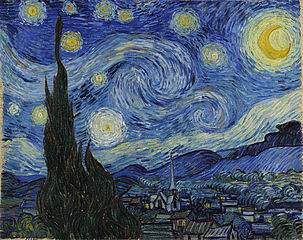This is an interesting questionning, rather than question, as I am not
sure what is the question stated, because too many issues are questionned or
questionnable
I think it is different, but very much related to a previous question
regarding the physical provability of the Church-Turing thesis stating
that any computing device that can be built will compute no more than
what is computable by a Turing machine.
One issue with the Church-Turing thesis is that the concept of proof
in an axiomatic theory is fundamentally the same as the concept of a
computer program, i.e., a Turing Machine.
This is not in the sense that a program can churn out theorems and
proofs, as in Ron Maimon's presentation of Gödel's proof, but because
a program can be "read" as a proof of its specification ("Given a
value x such that P(x) holds, there is a result y such that Q(x,y)
holds.") and conversely a proof may be read as a program that actually
computes whatever is stated by the theorem. This presentation is of
course a very simplified version of a result by Curry and Howard
(1980) which is still researched.
Hence one major issue with the possible limitations of calculability,
whether there are such physical limitations or not, and whether we can
prove or not the existence of such limitations, is that
mathematical proofs are directly concerned by the same
limitations. One crucial aspect of such limitations, which I will
address below is the denumerable nature of intellectual processes.
We can assume, we must assume, that our way of doing
mathematics, including physical theories, is consistant. This is
really (to me at least) a physical view of it: we do find
inconsistencies, usually called paradoxes, but there are resolved
(have been so far) like experimental inconsistencies in physics,
by refinements of the théories and evolution of concepts to
overcome the difficulty and state the problems appropriately.
Assuming mathematics is essentially consistent is essential,
because whatever we can prove should not be questionned by future
extensions, if any are physically possible, of the concepts of
calculability or provability.
Now some results make deep assumptions that are not always obvious to
interpret. In the case of Gödel incompleteness result, one major
aspect is that logical formulae, theorems and proofs can be encoded as
integers. This means that our logical deduction systems are
fundamentally denumerable entities (like Turing machines). If it
turned out that a breakthrough in physics allowed us to deal
effectively with non-denumerable systems, then results relying on this
denumerability would be in question. This is precisely the case for
Gödel incompleteness result, as stated (possibly it could come back in
another form).
I addressed this denumerability aspect in my answer to the question on the physics provability of Church-Turing thesis. At the time this answer was entirely based on my informal understanding of these issues. Intending to improve a bit on my answer, I looked for some litterature, and the topic is currently actively researched. While my knowledge of this literature remains more than shallow, it seems that my intuition was correct, that a proper handling of the fundamentally discrete (or denumerable) character of calculability, and provability, is essential in the current state of the art, for deriving Church-Turing thesis from the laws of physics, and that
continuity or real numbers are a major issue.
One approach I have looked at (I am limited to papers in open access on the web) relies on assuming a specific property of the physical world, presented as dual of the limitation on the speed of light and information, which is a limitation on the space density of information, both limitations together ensuring density limitation in space-time. The translation of this new law in physical terms can actually be subtle to account for various existing physical laws. This apparently excludes unregulated use of real numbers.
If this limited density law is actually verified, I think it would also mean that Gödel theorem is also a consequence of physical laws.
Whether such a limited information density law is actually verified is another matter. If it is not, then doors remain open for an extension of the concepts of calculability and provability.
In such a case, assuming that our mathematics are otherwise consistent, all provable results would remain provable, but we might be able to prove new theorems
that were true but not provable in the classical denumerable setting.
So the answer to the question whether a theory of Everything would
evade Gödel's incompleteness theorem is very much dependent on what
Everything is, since it actually determines the context in which
calculability or provability have to be defined. Would a theory of Everything include a law limiting information density.
Note that even with Gödel's result being valid, there could be a possibility of a
theory of Everything, in which all true facts regarding the universe
would indeed be true. It is just that you would not be able to prove
it (so that the universe would keep some mystery for us to wonder in
starry nights).
On the other hand, there could be no such theory of everything. But, what would the ultimate
definition of a theory if physics allowed us to question the discrete nature
of the language in which they are expressed ?
For the rest, other than taking 42 as ultimate answer, I can only suggest leaving the matrix to get the Truth about our world, or reading Simulacron-3.

